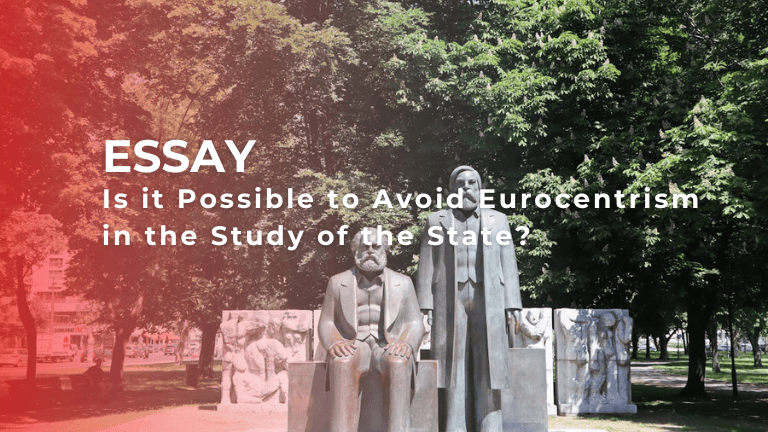
Is it Possible to Avoid Eurocentrism in the Study of the State?
Prompt: Is it Possible to Avoid Eurocentrism in the Study of the State?
Version 1
Introduction
Oxford defines Eurocentrism as the view that Europe is the center of the universe. People often explain ideologies like democracy and communism from a European perspective to understand different political spheres. Removing Eurocentrism from the study of the state is difficult because Europeans have provided a lot of evidence and case studies that support the effectiveness of various political ideologies.
Democracy vs Eurocentrism
Democracy gives people the power to make decisions about their government. Citizens vote for leaders, speak freely, and have equal rights. It ensures fairness, freedom, and the protection of individual rights. People can express their opinions and make changes through peaceful elections. Eurocentrism stays connected to the study of democracy because many modern political ideas, like democracy, developed in Europe. European countries shaped global politics through colonization and spread their political systems worldwide. European scholars documented events in detail, creating a large amount of historical evidence and case studies. This makes it hard to separate European influence when studying the state.
Communism vs Eurocentrism
Communism aims to create a classless society where everyone is equal. It eliminates private ownership and distributes wealth and resources equally. This system reduces poverty, inequality, and exploitation. Eurocentrism links to communism because Karl Marx and Friedrich Engels, who developed communism, were from Europe. The Soviet Union, the first major communist state, was located in Europe. Scholars and political movements have recorded the rise and fall of communism in European countries, providing diverse evidence and case studies. Because of this, the study of communism is closely tied to European history, making it difficult to separate Eurocentrism from communism.
Conclusion
In conclusion, both democracy and communism originated in Europe. Even though people try to study states from different perspectives, Eurocentrism remains important because Europeans conceptualized these ideas and documented the successes and failures of both ideologies.
Version 2
Introduction
Eurocentrism is defined by Oxford as viewing Europe as the center of the universe. While many political ideologies such as democracy and communism, are often explained from a European perspective, it is possible to remove Eurocentrism from the study of the state. By exploring diverse cultural and historical contexts, we can better understand how different societies shape their political system and ideologies.
Democracy vs Eurocentrism
Democracy is a system that allows power to the people. Citizens can vote for their leaders, speak freely, and enjoy certain rights. This creates fairness, freedom, and protection of individual rights. While the idea of democracy has roots in Europe, it has also evolved in many other cultures. Countries in Africa, Asia, and Latin America have developed their own democratic systems based on local values and traditions. By studying these alternative democracies, we can gain a broader understanding of how democracy works in different contexts, moving beyond a purely Eurocentric view.
Communism vs Eurocentrism
Communism, too, can be examined from a non-Eurocentric perspective. While the original ideas came from Europe through thinkers like Karl Marx, and Friedrich Engels, many countries have adapted and applied these ideas in unique ways. Nations such as China, and Cuba have developed their own interpretation of communism that reflect their specific histories and social conditions. By analyzing these diverse forms of communism, we can see how the ideology has been shaped by different cultural and political contexts. This helps to break the connection between communism, and Eurocentrism, which allows for a more inclusive understanding of the ideology.
To study the state without Eurocentrism, researchers can focus on variety of global perspective outside Europe. This includes examining the political system and ideologies that have emerged in non-European culture. By understanding the contributions of these societies, people can understand the different political ideas without referring to Europe’s influence.
Conclusion
In conclusion, while Eurocentrism has played a significant role in shaping modern political ideologies, it is possible to remove its influence from the study of the state. By exploring diverse perspectives and recognizing the contributions of various cultures, we can gain a more comprehensive understanding of political ideologies like democracy and communism, as well as their impact on the world.
Check my other writing especially my IELTS
My other websites IELTS Rizz and Educatorian

Ian Tanpiuco is an ESL and virtual assistant. With a decade of experience, he has become an expert in his field. Dedicated to helping others achieve their goals, Ian works tirelessly in the classroom or as a virtual assistant.